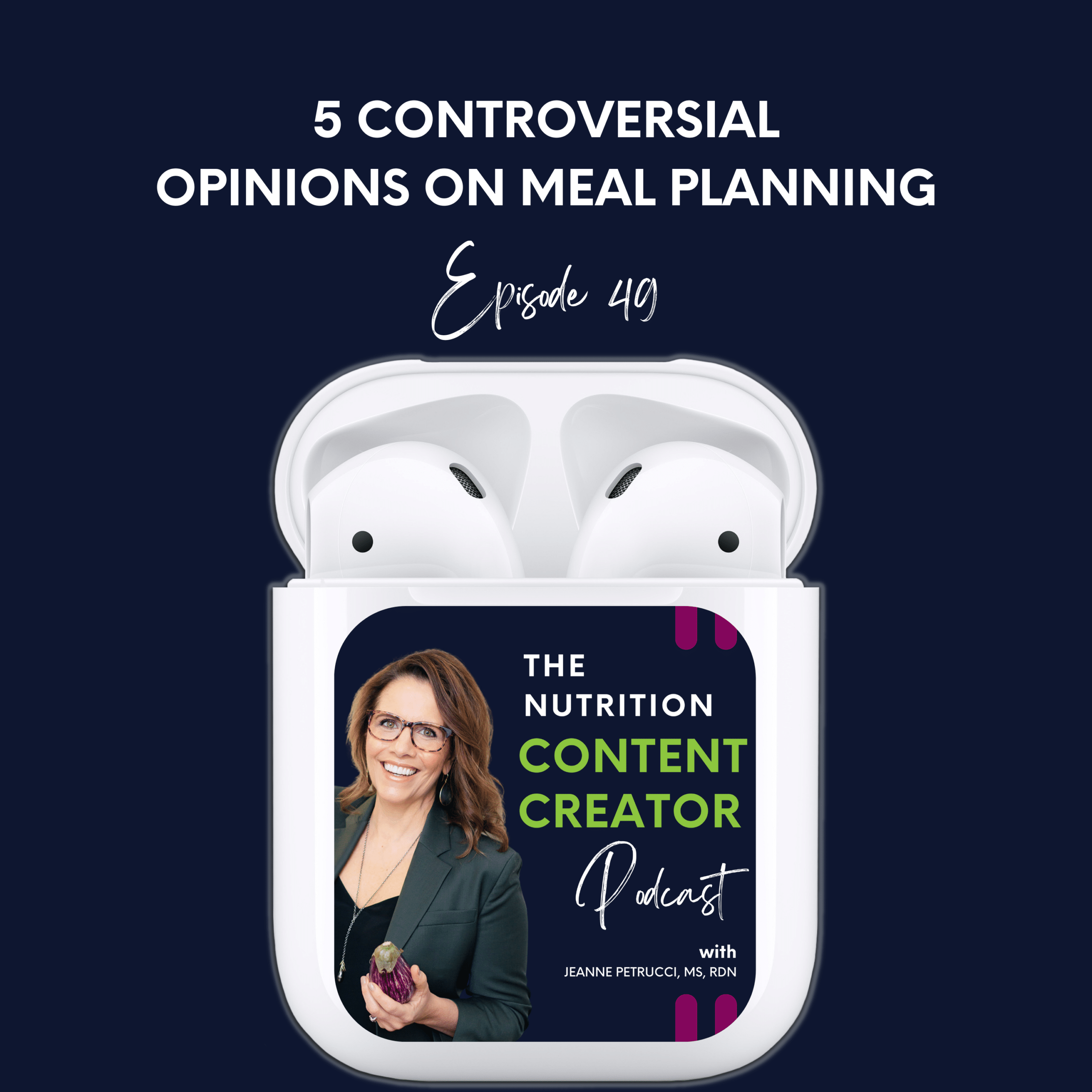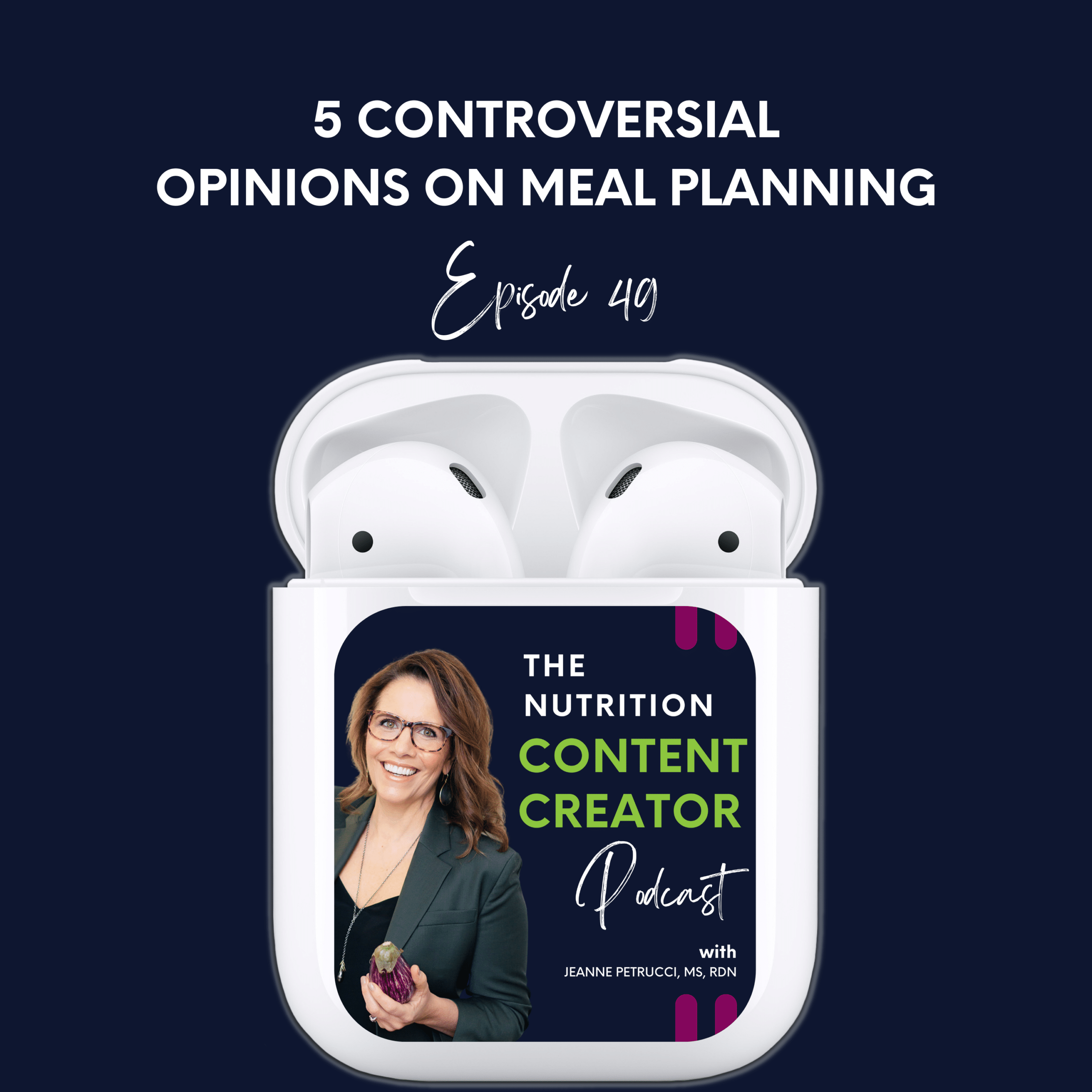49. 5 Controversial Opinions on Meal Planning

Twice per month, I go live in our private FB group to hold a Q&A Office Hour and Strategy Call. Each event includes a conversation about a strategy for utilizing content for practice growth.
Today’s recording focuses on my controversial opinions about meal planning and the FAQs we receive about meal planning in practice. For the complete recording, you can visit our private Facebook group, Scale Your Nutrition Practice.
As a meal planning SaaS developer, RD, and culinary educator for almost three decades, I bring different perspectives [and strong opinions] to applying meal planning to evidence-based nutrition care.
As you listen to today’s episode, try to view the principles discussed from a practical perspective versus a theoretical one.
Most meal planning functions promise to solve YOUR theoretical problems [i.e. workflow, quick meal plan generation, data collection] but they often don’t translate well into solving your PATIENTS’ problems.
Principle #1: Nobody follows a meal plan [nor should they be expected to]
Many of your patients come to you wanting a meal plan because they think it will solve their problem. It won’t. Plus, following a meal plan is NOT sustainable, no matter how simple it is. It should serve as a RESOURCE only, never a mandate.
Principle #2: Screening out recipes removes teaching moments
Providing an “absolute” meal plan – one that exactly matches a patient’s preferences and needs – does not “teach a man to fish”. Your patients need to be able to adjust a plan so they can learn. With your support and some resources, they will learn how to navigate their nutrition without a stringent plan.
Principle #3: Computer algorithms create lousy meal plans
While algorithms will get the numbers right, they don’t consider the eating experience – color, texture, taste combinations, realistic daily prep. Data, like macros, is important, but it should be driven by food selection in a practitioner-enabled environment.
Principle #4: Tracking intake from a meal plan is nuts!
I would never put that kind of pressure on a patient. Can you imagine being given a meal plan and told “Record your success with following this plan”?
Remember Opinion #1 – if you understand that most humans cannot follow a meal plan long-term, how could this possibly make sense?
Principle #5: A PDF Meal plan is not a long-term solution.
PDF and static meal plans have their place – mostly as marketing tools – but they are not long-term solutions for nutrition care.
Your Content Cure for This Week
Your Content Cure for this week is a 20-page ebook, Your Ultimate Guide to Meal Planning, that can support you in having a conversation about the use of meal plans with your patients and clients. This guide is editable and you can brand it and use it in your practice.
>> DOWNLOAD YOUR RESOURCES HERE<<
Key Takeaway
Relying solely on a pre-set meal plan isn’t the answer. It doesn’t empower people to make healthy choices on their own. Sure, data like macros matter, but food preferences should guide those choices. Ideally, this should happen with the support of a qualified professional. Just following a pre-written plan is like running in circles! Static meal plans, often found in PDFs, might be good for marketing, but there are more sustainable solutions for healthy eating habits.

Jeanne Petrucci MS RDN
Founder, Expert Nutrition Content Creator


